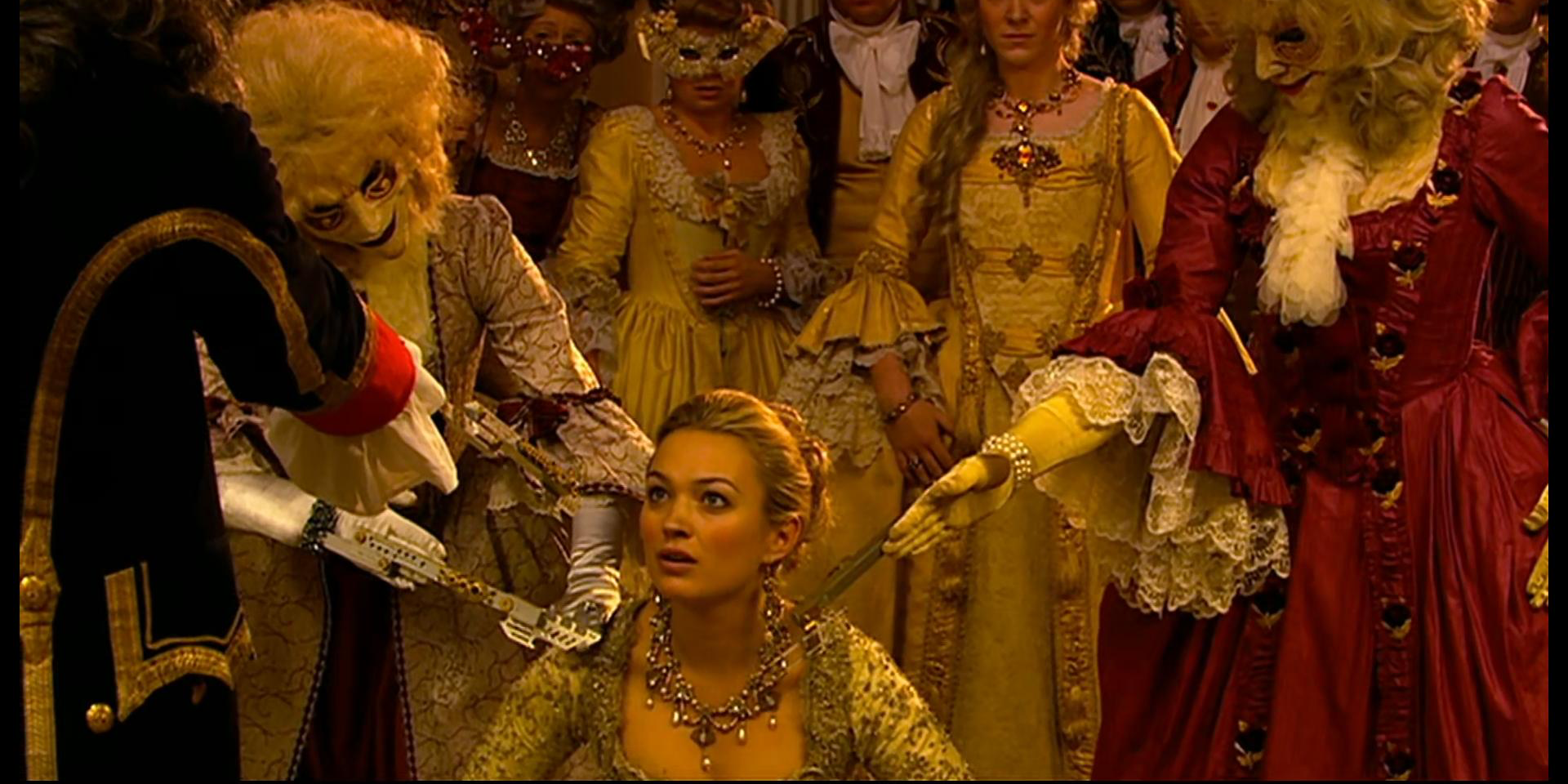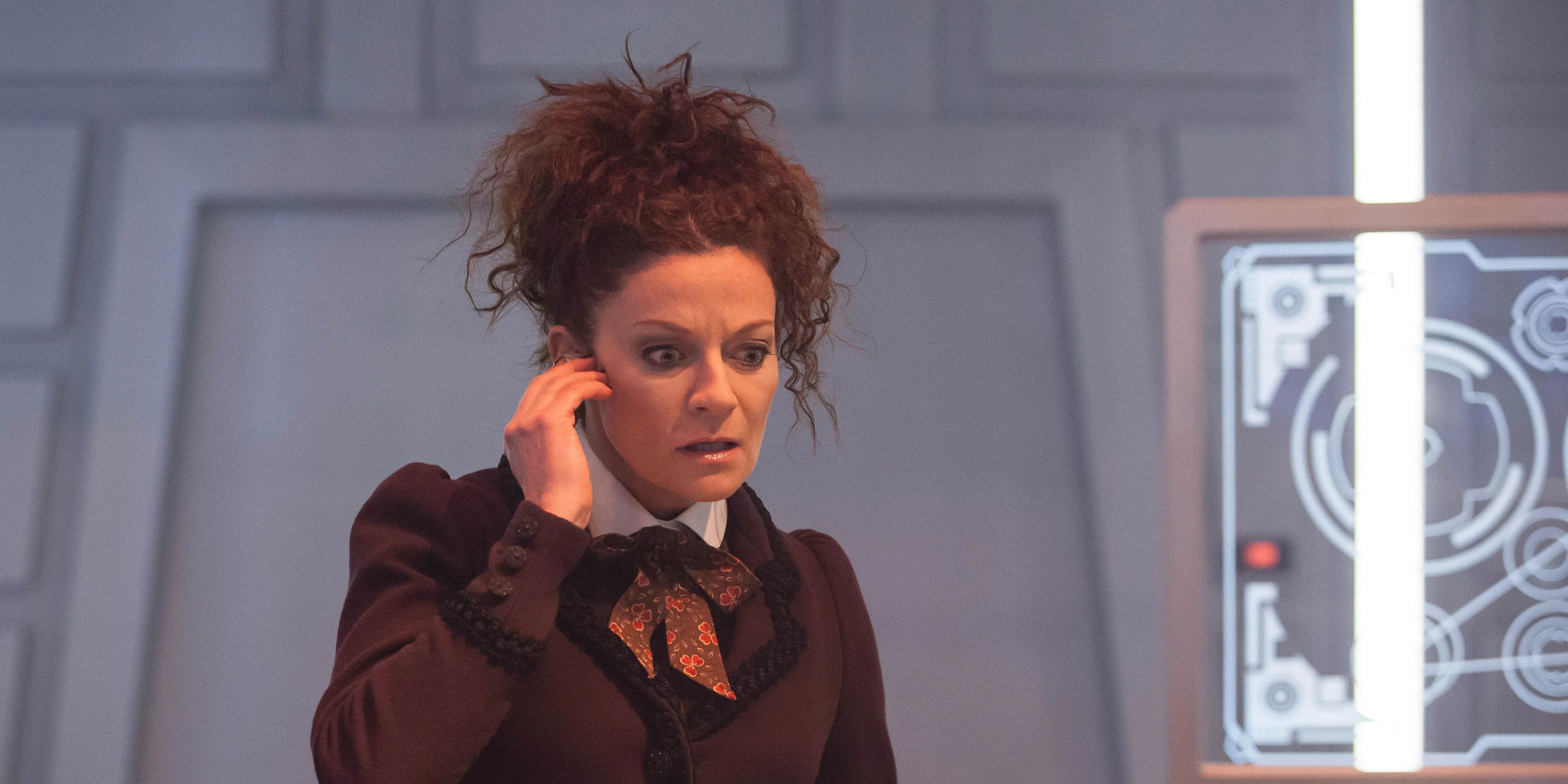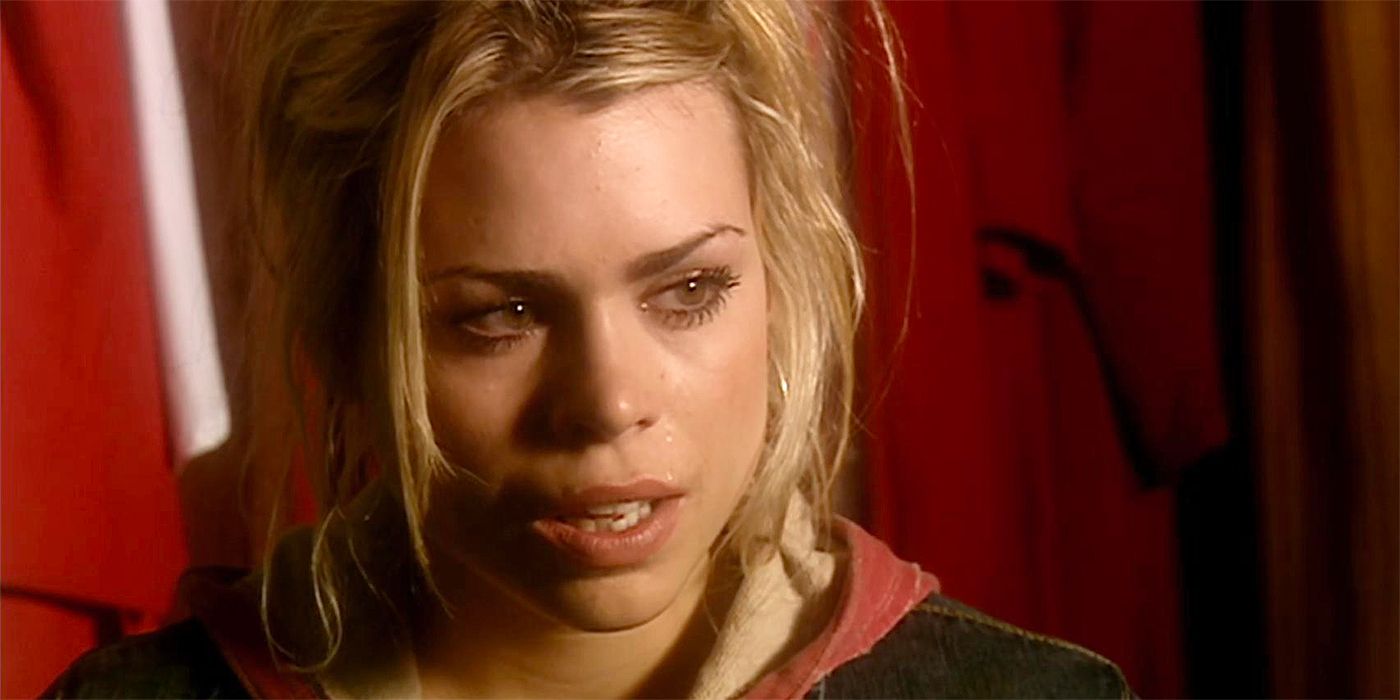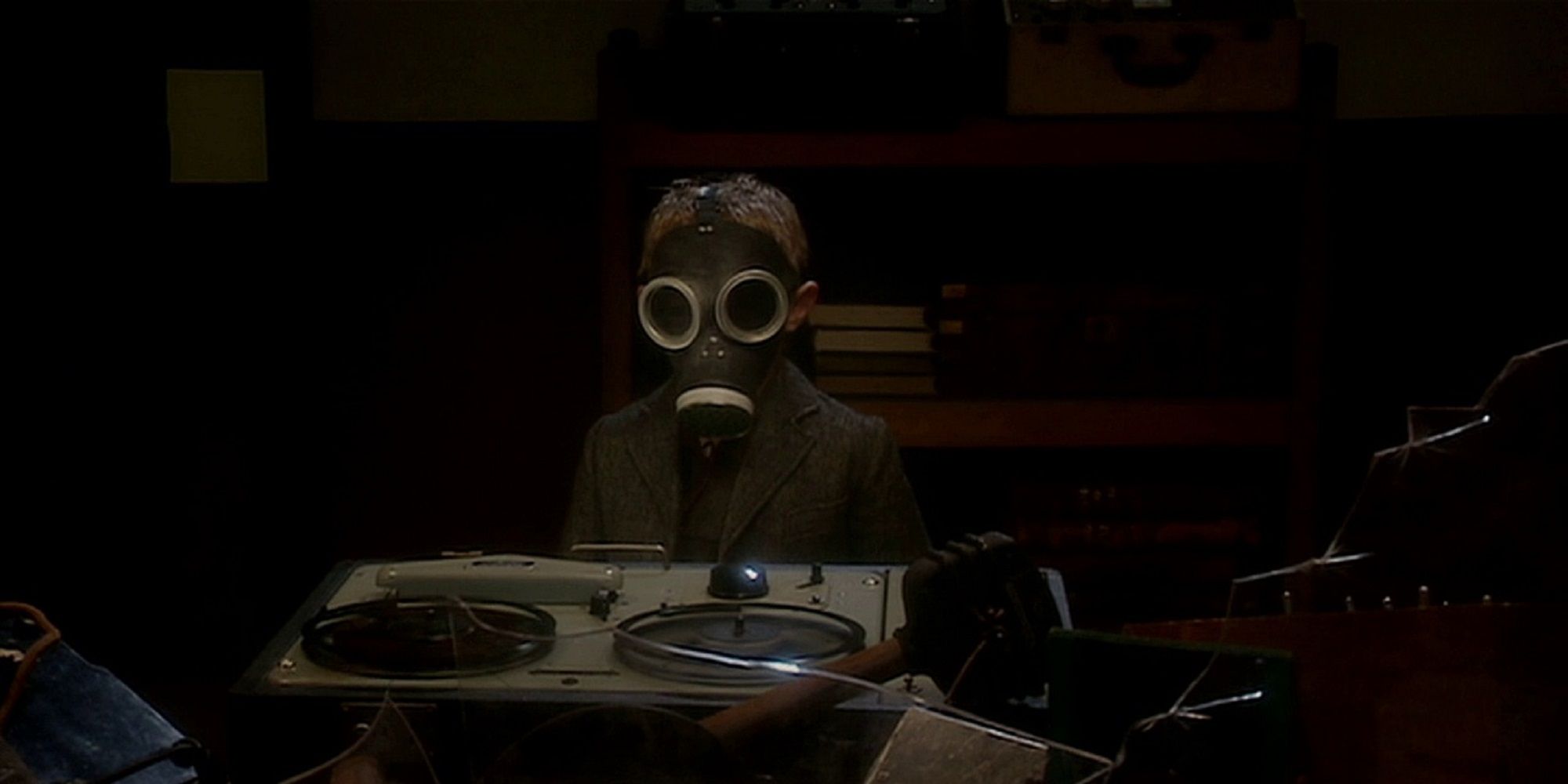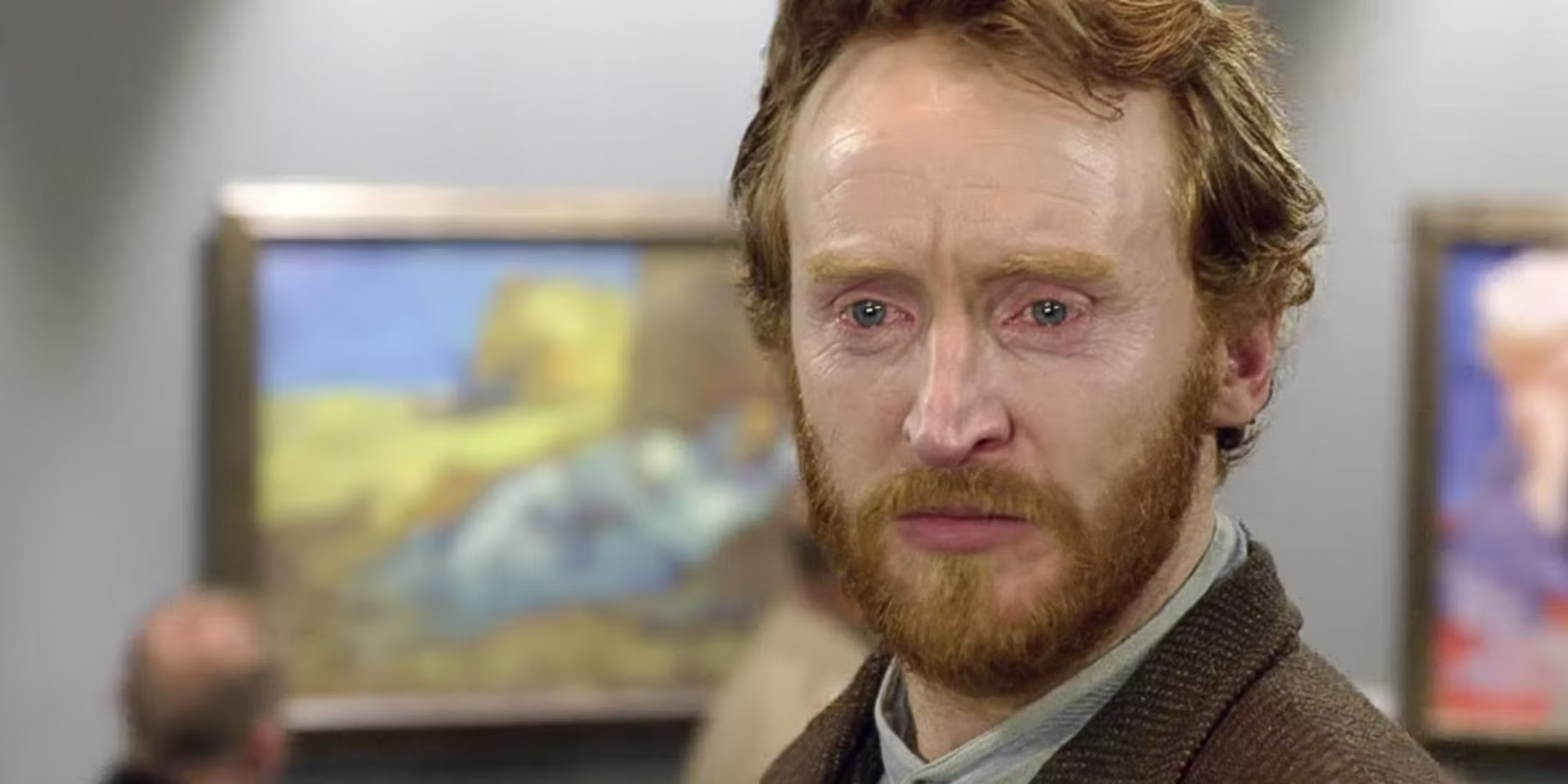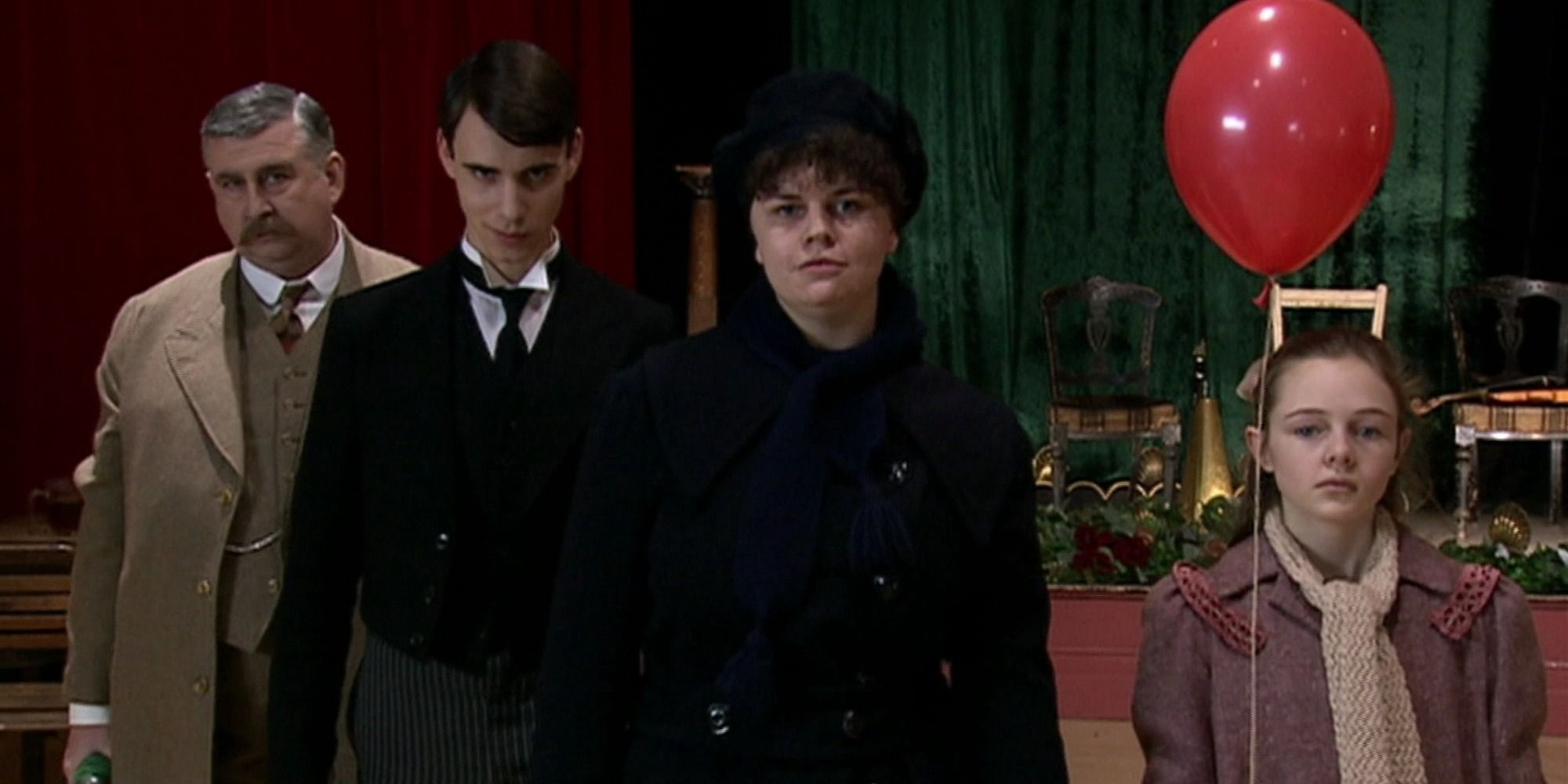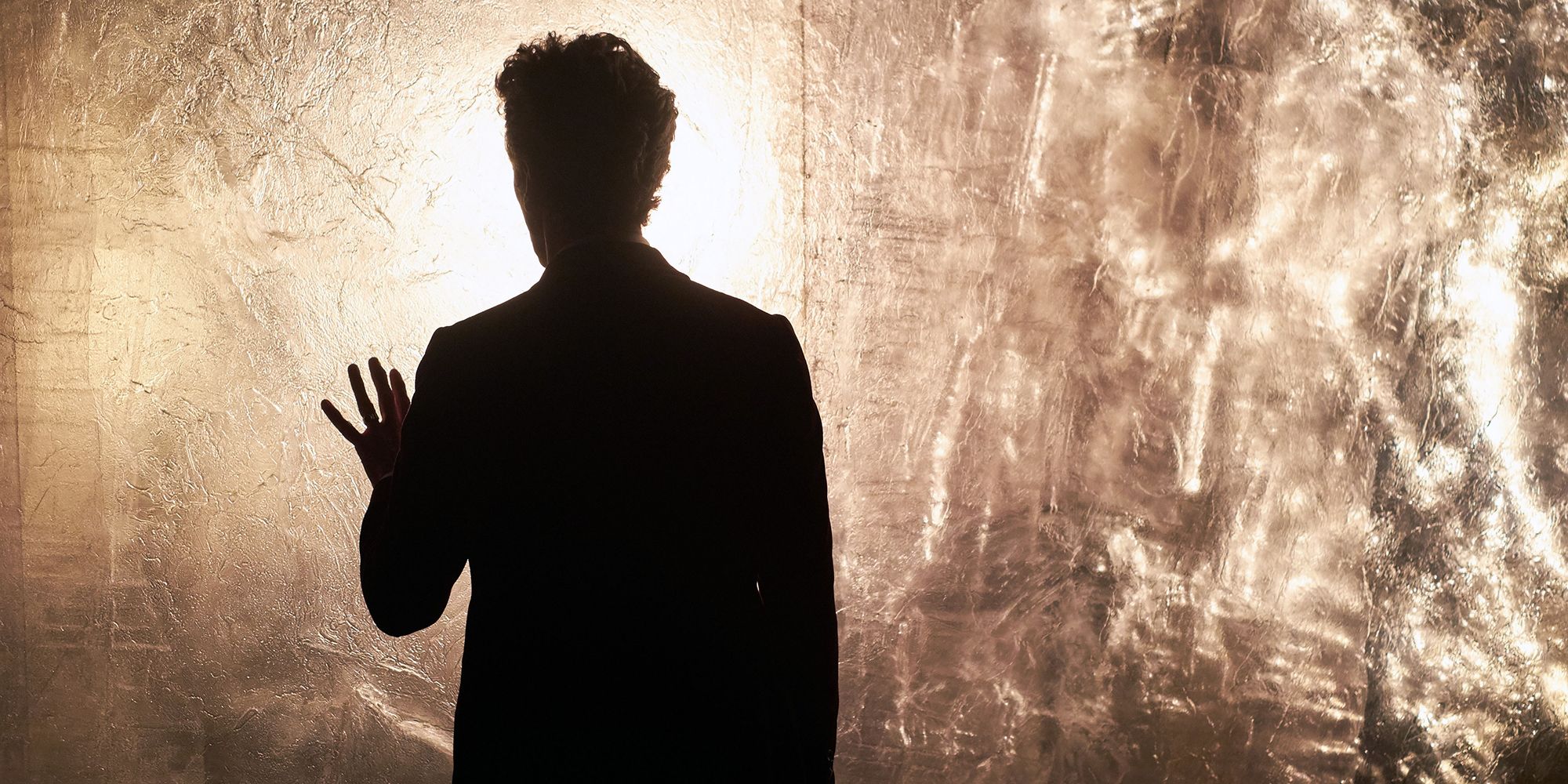There is perhaps no more iconic British show than Doctor Who. In both of its incarnations, classic and modern, the often camp and always enthralling sci-fi series features an iconic host of other-worldly creatures, not least the titular character himself whom we have all grown to love.
From the universe’s biggest library haunted by unseen creatures to a 51st-century spaceship attached to 18th-century Paris, the beauty of Doctor Who lies in the ability of the show to quite literally do anything, leading to a selection of episodes that many consider to be masterpieces. Since the revival of the series for a 21st-century audience in 2005, audiences have been privileged enough to witness not just some of the best episodes in the entire series, but some of the best episodes of television of all time.
10 “The Girl in the Fireplace”
Season 2, Episode 4
Steven Moffat‘s time as a showrunner is considered a mixed bag, although, in the Russell T. Davies era, his run of written episodes stands as some of the best in the entire series. Case in point: “The Girl in the Fireplace”, an episode inspired by Audrey Niffenegger‘s novel The Time Traveler’s Wife. With Mickey (Noel Clarke) now on board the TARDIS, he, Rose (Billie Piper), and the Tenth Doctor (David Tennant) land on a derelict spaceship in the 51st century and are immediately met with an intriguing puzzle. Behind an obscure fireplace on the spaceship is a direct link to 18th-century Paris, in particular, the bedroom of one Madame de Pompadour (Sophia Myles).
Inspired by his work on the period drama Casanova, another collaboration with Tennant, Davies always dreamed of setting a sci-fi tale in the pomp and fancy of 18th century France, with Moffat taking that idea and wrapping it up in his customary mind-bending narrative style to create an episode that is equal parts gorgeous and thought-provoking. Showcasing the true dangers of a man who can travel in time and those he will leave behind, a poignant precursor to this season’s finale, “The Girl in the Fireplace” more than earned them 2007 Hugo Award for Best Dramatic Presentation, Short Form.
9 “World Enough and Time/The Doctor Falls”
Season 10, Episodes 10 and 11
The fate of Bill Potts (Pearl Mackie) still haunts fans to this day. With Season 10 coming to a close, the unlikely student/teacher bond of Peter Capaldi‘s Twelfth Doctor and the aforementioned companion had grabbed the hearts of the audience, which makes the early events of this two-parter simply harrowing. Attempting to answer a distress call in space, the Doctor and co. land on a ship that is spiraling toward a black hole, leaving one end moving slower in time than the other. After Bill is shot by a crew member and taken away to be cared for, her life moves faster than the rest, which signals alarm bells when it soon becomes clear that her carers are not at all what they seem.
For the first time in Doctor Who‘s history, a multi-master story was on the cards with both Michelle Gomez and John Simm‘s incarnations of the iconic villain sharing the screen. With both actors two of the best to ever do it on the show, this meant a recipe for success, and, combined with Rachel Talalay‘s excellent direction and Murray Gold‘s always-breathtaking score, a finale for the ages was born. However, Gold’s score was intelligently chosen to not be present during the story’s high point, with Capaldi delivering a superbly written and effortlessly performed monologue to both of the Masters, as he doesn’t just attempt to convince them to do the right thing, but basically lays out the entire mission statement for the character of the Doctor in just a couple of minutes.
8 “Father’s Day”
Season 1, Episode 8
Season 1 of Doctor Who was intent on telling human stories sprinkled with sci-fi, with this episode the perfect encapsulation of Davies’ new intentions with the classic show. Now having been on board the TARDIS long enough to earn her stripes, Rose takes the leap and begs the Doctor (Christopher Eccleston) to let her go back in time to see her father (Shaun Dingwall) who had died when she was just a baby. Promising she would simply watch and not intervene, emotions get the better of Rose as she tackles her father to the ground and out of the way of the very car that was supposed to kill him, setting in motion a course of actions that will eventually lead to the demise of many and time running out.
In classic Doctor Who, camp monsters and far-flung planets were the order of the day, with many complaining that the intricacies of time travel were rarely unpacked in their truest form. Step up “Father’s Day”, which forgets the out-of-this-world norm of Doctor Who and replaces it with a touching drama that gives its lead female character a chance to shine. Both Eccleston and Piper are painfully brilliant in this episode. Still, it is guest star Dingwall as Rose’s father, Pete, that steals the show, with the slow, heartbreaking realization that his death is necessary to save the world juxtaposed by his chance to meet his future daughter. This nuanced dichotomy tugs at the heartstrings of viewers.
7 “Silence in the Library/Forest of the Dead”
Season 4, Episodes 8 and 9
Alex Kingston‘s River Song is a character beloved by millions, and this, her introductory story, is widely considered to be her best. Summoning her ‘sweetie’ to the largest library in the universe, Song and her team of archeologists require the assistance of the Doctor and Donna (Catherine Tate) to try and solve the puzzle of the library, why it is seemingly connected to the mind of a child, and fight the flesh-eating monsters that lurk in the shadows.
Moffat tends to turn the every day into horror, preying on the audience’s most visceral of fears in his episodes. This two-parter is no different, with the concept of shadows suddenly becoming the subject of the audience’s nightmares. With a swirling narrative full of twists and turns ready to keep you on your toes, this two-parter is sci-fi at its heart-pumping best. However, the highlight of this story hangs in the unquantifiable relationship between Song and the Tenth Doctor, with the audience hanging onto every word trying to unlock the secret to their past, with this a plot thread that would pay off over several years.
6 “The Empty Child/The Doctor Dances”
Season 1, Episode 9
Doctor Who and horror go together like salt and pepper, with this first-season two-parter managing to make war even more frightening than it already was. Landing in 1941 in the middle of the London Blitz, the Doctor and Rose must fight to find the identity of the monster that terrorizes the locals, not knowing that it would come in the form of a fearful gas mask-wearing child who seemingly just wants to find his mummy.
Boosted by the greatest cliffhanger in the entire series, and a terrifying moment of CGI that shockingly holds up to this day, “The Empty Child” and “The Doctor Dances” are Doctor Who at its very best, blending a historical setting with sci-fi horror to create an unforgettable viewing experience. Add into the mix the first, and perhaps best, appearance by John Barrowman‘s suave former time agent Captain Jack Harkness, and there is quite literally something for everyone, with writer Moffat even managing to sprinkle in a bit of his comedic roots during some of the lighter scenes in the story.
5 “Vincent and the Doctor”
Season 5, Episode 10
Eyebrows were raised when it was first announced that Richard Curtis would be writing for Doctor Who, with many questioning whether the rom-com writer would be able to transition seamlessly into sci-fi, although this was some three years before the release of About Time. How wrong people were, with Curtis choosing to use his penchant for emotionally resonant and love-fueled storytelling to tell the tale of the iconic Vincent van Gogh (Tony Curran) and his sad battle with mental illness as the Doctor (Matt Smith) and Amy (Karen Gillan) travel to 1890 to try and find the source behind an ominous figure in the back of one of van Gogh’s paintings.
By some distance, this episode is the most tear-heavy of the modern era of Doctor Who. Curran’s performance as the Dutch painter is still arguably the greatest guest performance in the entire show, with his capturing of a face only history remembers and turning him into a character we all feel inside ourselves is simply genius. This is no more obvious than in the episode’s closing scenes, with the Doctor and Amy taking van Gogh to present-day Britain to witness an exhibition of his art, with the man himself sure his work would never be remembered. A tearjerking Bill Nighy monologue and intelligently spinning direction by Jonny Campbell later and there is not a dry eye in the house, made even more resonant when the Doctor admits that, despite this moment of unadulterated joy in the life of a man so rid of such wonder, his mental illness would still overcome him. For every picture van Gogh painted, it is this picture of heartbreak despite happiness and ‘good things not outweighing bad things’ painted by Smith’s Doctor that makes this episode unlike any other in the show’s illustrious history.
4 “Human Nature/The Family of Blood”
Season 3, Episodes 8 and 9
What would happen if the Doctor became human? This is a question fans had long wondered, and they would finally get their answer in Season 3 of the modern era. Chased by the titular malevolent force, “The Family of Blood”, the Doctor and Martha (Freema Agyeman) hide in 1913 England at a public school, with the Doctor implanting his Time Lord identity inside a fob watch and turning himself human to escape their clutches.
This two-parter does a magnificent job at showing the alien fallibilities of the man that audiences saw without fault, as the Doctor’s decision to hide Martha in a frankly racist historical environment sets the tone for what is to come. Rather than show viewers both versions of the Doctor, writer Paul Cornell, who penned the 1995 Doctor Who novel this is based upon, showcases what he would be like if he was human, and gives the audience a chance to watch him make mistakes, fall in love, and forge his own path, leading to a final decision between staying human and returning to Time Lord that actually splits our hearts and minds. This is made all the more painful when the Doctor, now John Smith, sees the life he was supposed to live alongside Jessica Hynes‘ Joan Redfern and the children they were supposed to have. To choose to lose that for the sake of the universe is a sacrifice not many would make, with the Doctor’s now painfully clear problems resolved in one fell swoop of typically selfless action.
3 “Blink”
Season 3, Episode 10
Doctor Who‘s most iconic episode barely even features the titular Time Lord. “Blink” follows a pre-Hollywood Carey Mulligan‘s Sally Sparrow in present-day England as she is contacted through DVD Easter eggs by the Doctor trapped in 1969, as he tries to stop the Weeping Angels from taking over his TARDIS. As time closes in on her and her friend Larry Nightingale (Finlay Robertson), will they be able to save the day, stop the angels, and, most importantly, not blink?
It is undeniable that Moffat has a monopoly over an intricate understanding of time travel, with the writer somehow able to take the laws of time and turn them into his playground throughout Doctor Who. This is no more present than in “Blink”, with the man himself even mocking his own abilities, playfully referring to them as “wibbly-wobbly, timey-wimey… stuff”. Such a comprehensive dedication to mastering the ‘time’ element of ‘time and space’, with other eras of the show almost exclusively playing with the ‘space’ concept, Moffat even won the BAFTA Craft award for Best Writer for this episode, and carved with it some of the most iconic monsters in modern Doctor Who. Add that to a central performance from Mulligan that won her the Constellation Award for Best Female Performance in a 2007 Science Fiction Television Episode and you have 45 minutes of breathless horror that those who watch it won’t be able to look away from… and nor should they for fear of death.
2 “Midnight”
Season 4, Episode 10
Simply, breathless. From the first moment Tennant’s Tenth Doctor steps foot on the touring vehicle ready to visit the planet Midnight, there is a rumbling sense of unease. Alongside several other passengers, the driver, mechanic, and hostess, portrayed by Rakie Ayola, the group soon realizes that the planet they are visiting, one they all believed to be uninhabitable, is occupied. As the unknown entity slowly infiltrates their vehicle, one group member, Sky Silvestry (Lesley Sharp), becomes possessed by the creature, as she starts to copy the group’s words, eventually stealing the Doctor’s one greatest asset – his voice.
The genius of “Midnight” comes in Davies’ decision to use our protagonist’s powers against him, not just with his words, but with his confidence. As the Doctor tries to take charge of the group, his assuredness begins to be perceived as arrogant, as the Doctor’s normal ability to encourage people to follow him backfires. The deafening tension that was once held between the creature and the group is now held between the group and the Doctor, as the possibility of our hero being killed by those he is trying to save increases. Thanks to some of Doctor Who‘s best ensemble performances and a single setting that crescendos into claustrophobic, “Midnight” manages to convince an audience that a mid-season filler episode might kill the show’s hero, which is a task all but impossible for most other series.
1 “Heaven Sent”
Season 9, Episode 11
Perhaps the strongest narrative arc in Season 9 was Clara’s (Jenna Coleman) desperation to become as strong and decisive as the Doctor, leading to her confidence turning to arrogance and her eventual demise in “Face the Raven”. Overcome with guilt and struggling to cope with the loss of his friend, The Doctor awakens inside a water-locked castle, tracked by a methodical unstoppable force as he tries to break out over the course of billions of years.
When all aspects of a top production come together, you get “Heaven Sent”. From Talalay’s detailed direction to Moffat’s genius script, this episode combines the best of the best from this era of Doctor Who, not least Gold, whose track “The Shepherd’s Boy” stands as one of the best pieces of composition in the entire series. Beyond its technical aspects, this episode’s highlight comes in its story, with the central discussion of grief and the lengths to which we have to fight to overcome it, some of the most life-changing television many fans have ever seen before or since. Capaldi, Moffat, Talalay, and Gold are all at their very best, with “Heaven Sent” proudly one of the greatest episodes of television ever put on screen.


